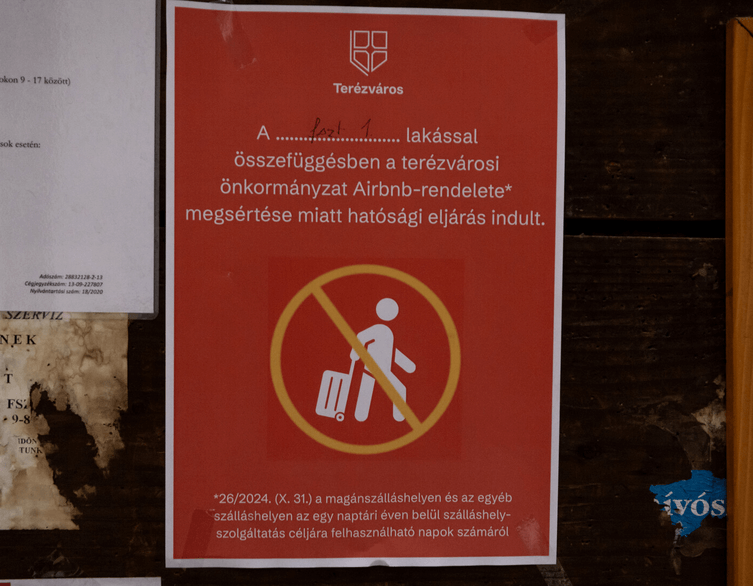Budapest’s Airbnb Ban: A Controversial Move to Preserve Residential Life

In a bold move to tackle the growing concerns of “touristification” and the housing crisis, Budapest’s 6th district, Terézváros, has passed a regulation today banning short-term rentals like Airbnb from January 1, 2026. This decision, backed by a local referendum, has sparked a heated debate among residents, property owners, and the government.
The Referendum
What sets Terézváros apart is the way they reached this decision. Mayor Tamás Soproni initiated an online referendum, allowing residents to have their say on the matter. With a turnout of 20.52% (6,083 voters), which is significantly higher than similar local referendums, the majority (54%) voted in favor of the ban. This unique approach to decision-making has not been seen before in Hungarian municipalities.
On Thursday, the Terézváros District Council approved the ordinance banning short-term rentals from 2026. The decision was supported by the Momentum-DK-Dialogue-LMP alliance, with only the Two-Tailed Dog Party representative voting against it, while Fidesz-KDNP and HAFE representatives abstained from voting.
Preparing for the Change
Mayor Soproni emphasized the importance of giving businesses ample time to prepare for the changes, hence the 2026 implementation date. He believes that the government’s proposed Airbnb restrictions are more of a superficial measure, failing to address the core issues of cohabitation conflicts, illegal rentals, and loopholes in the system.
Best deals of Budapest
He also emphasized that with this bold step, Terézváros became the first and – so far- only district in Budapest that “listened” to the voice of its people and stepped up to protect them in the face of uncontrolled tourism.
Opposition And Possible Court Proceedings
But not all see this as a favorable decision. Several local rental associations expressed their issues with the ban. The most prominent point they made was that over 50 and even up to 90% of the income of the majority of local entrepreneurs came from Airbnbs. They also mentioned that there were several issues with how the referendum was conducted, even suspecting unlawful actions. As for the time they got to “prepare” they claim that it is laughable, as many of the portals are already have booked stays for September of 2026 making it impossible to comply with the deadline. They event said that the incorrect introduction of this ban is already causing them serious financial losses and made it clear that they are ready to take the district to court by filing class action lawsuits worth several hundreds of million Forints.
Conclusion
Even despite the result of the referendum, it remains unclear what the locals actually want regarding the rentals in the district. On one hand it is a serious income source for local flat owners, but a nuisance for those actually living there.
Image source: cacor
Related news
















